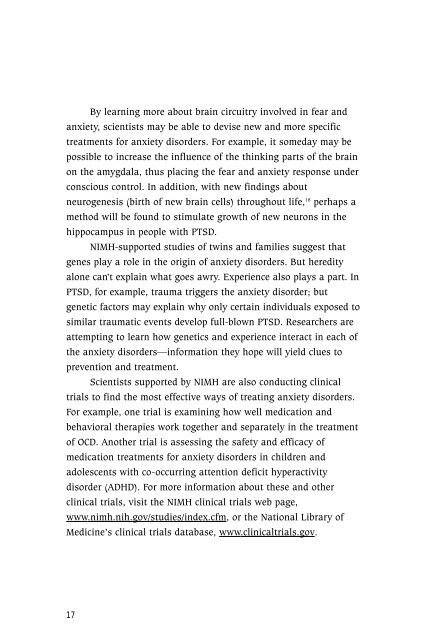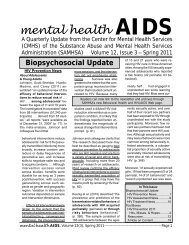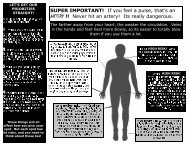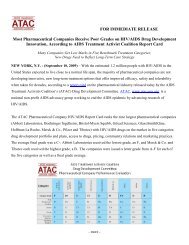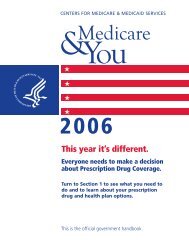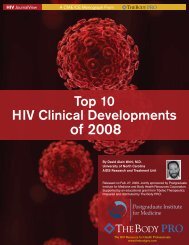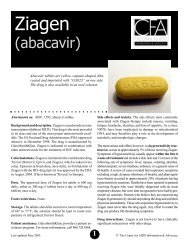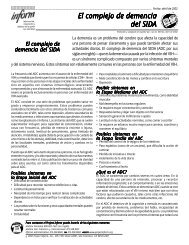Anxiety Disorders - CD8 T cells
Anxiety Disorders - CD8 T cells
Anxiety Disorders - CD8 T cells
Create successful ePaper yourself
Turn your PDF publications into a flip-book with our unique Google optimized e-Paper software.
By learning more about brain circuitry involved in fear and<br />
anxiety, scientists may be able to devise new and more specific<br />
treatments for anxiety disorders. For example, it someday may be<br />
possible to increase the influence of the thinking parts of the brain<br />
on the amygdala, thus placing the fear and anxiety response under<br />
conscious control. In addition, with new findings about<br />
neurogenesis (birth of new brain <strong>cells</strong>) throughout life, 18 perhaps a<br />
method will be found to stimulate growth of new neurons in the<br />
hippocampus in people with PTSD.<br />
NIMH-supported studies of twins and families suggest that<br />
genes play a role in the origin of anxiety disorders. But heredity<br />
alone can’t explain what goes awry. Experience also plays a part. In<br />
PTSD, for example, trauma triggers the anxiety disorder; but<br />
genetic factors may explain why only certain individuals exposed to<br />
similar traumatic events develop full-blown PTSD. Researchers are<br />
attempting to learn how genetics and experience interact in each of<br />
the anxiety disorders—information they hope will yield clues to<br />
prevention and treatment.<br />
Scientists supported by NIMH are also conducting clinical<br />
trials to find the most effective ways of treating anxiety disorders.<br />
For example, one trial is examining how well medication and<br />
behavioral therapies work together and separately in the treatment<br />
of OCD. Another trial is assessing the safety and efficacy of<br />
medication treatments for anxiety disorders in children and<br />
adolescents with co-occurring attention deficit hyperactivity<br />
disorder (ADHD). For more information about these and other<br />
clinical trials, visit the NIMH clinical trials web page,<br />
www.nimh.nih.gov/studies/index.cfm, or the National Library of<br />
Medicine’s clinical trials database, www.clinicaltrials.gov.<br />
17


